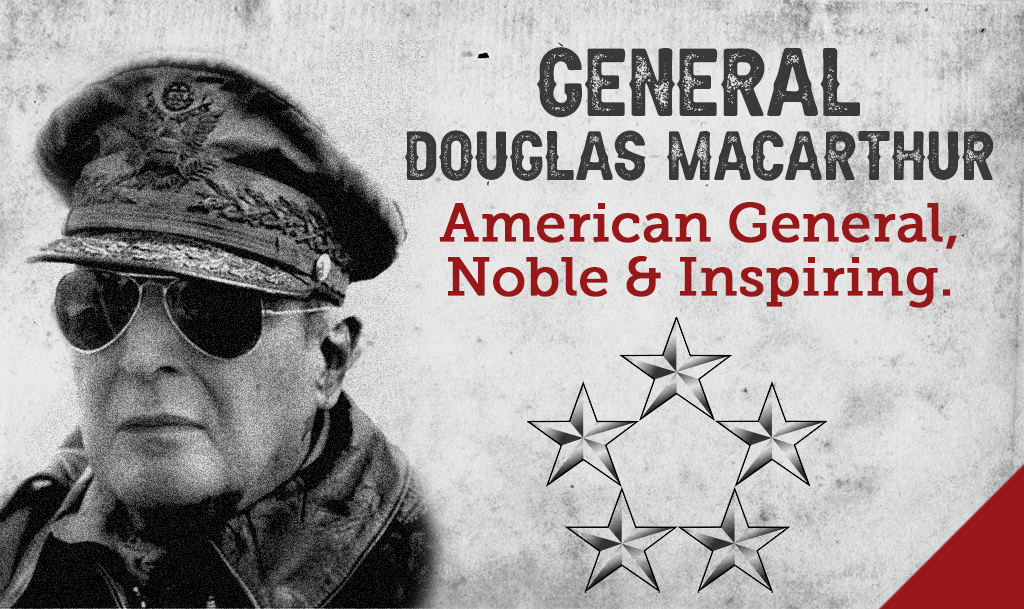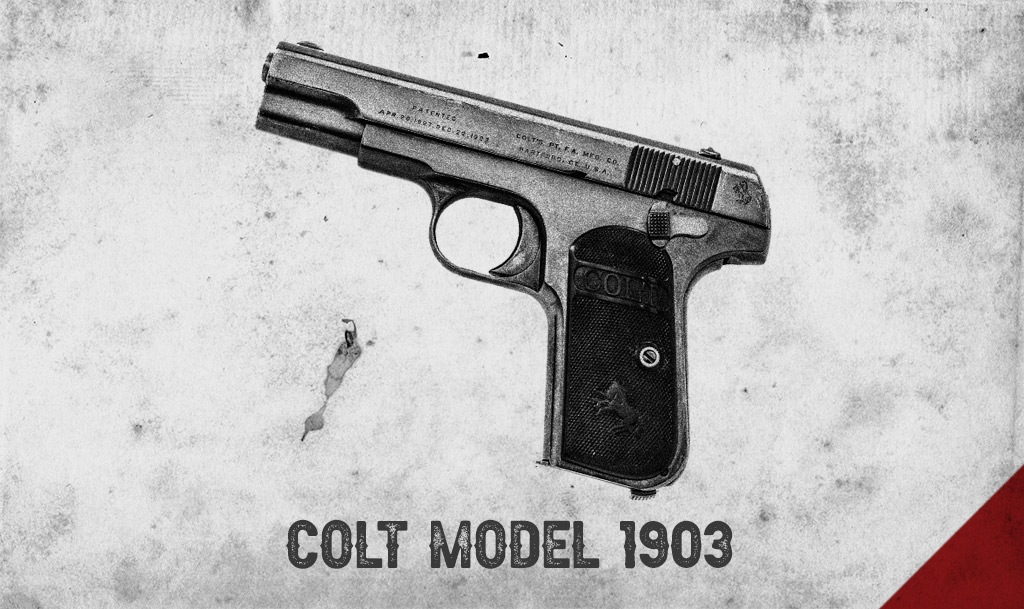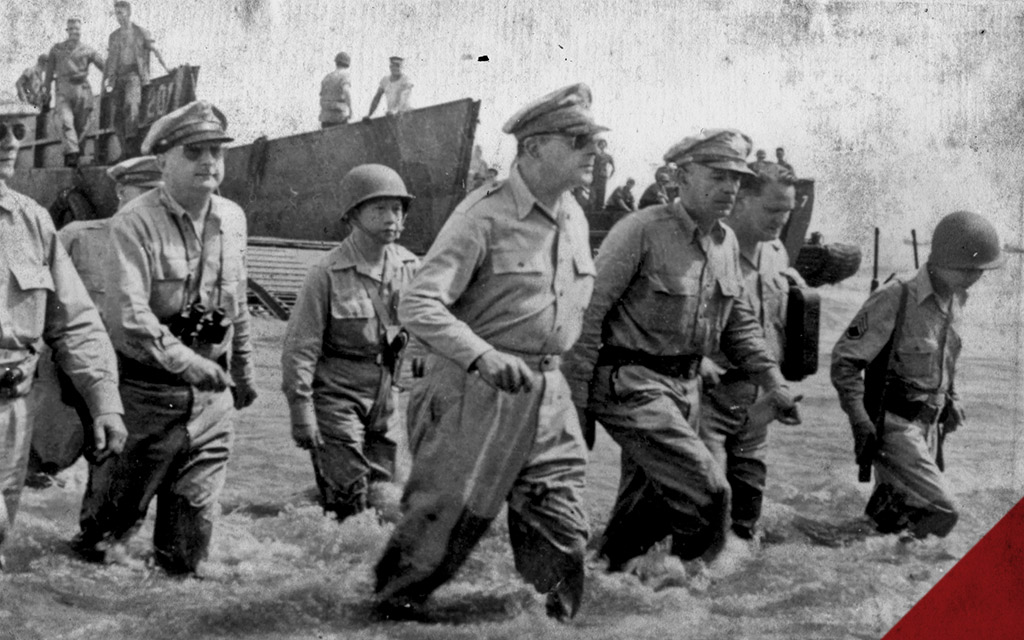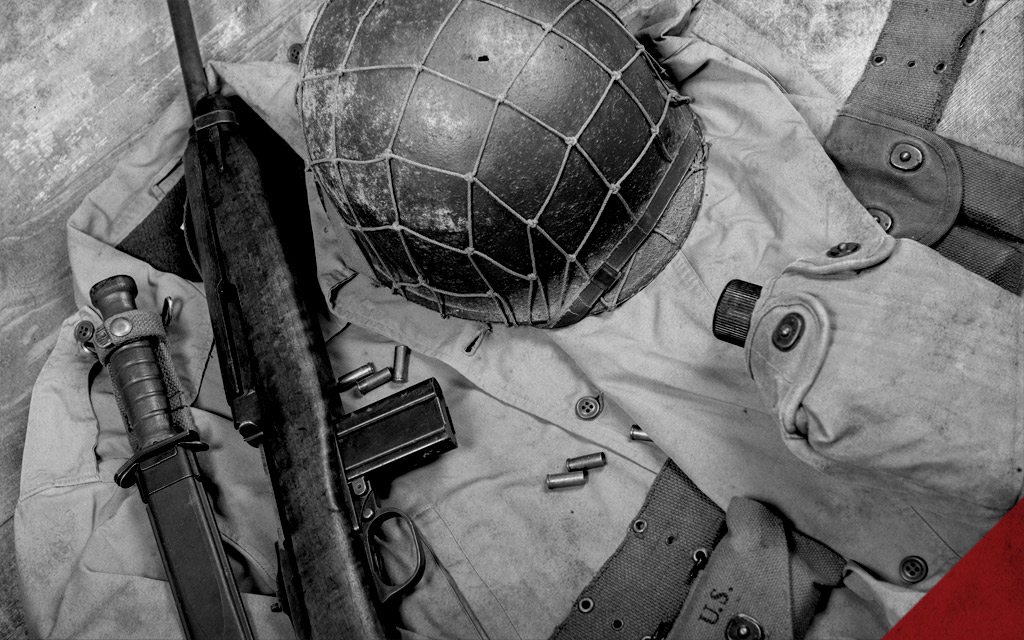

General Douglas MacArthur was a man of rare antinomy. While his bravery is legendary, historians equally well-documented his failures. President Trump called MacArthur his favorite military leader, however, President Harry Truman was not enamored. Having removed him from command during the Korean War because he “wouldn’t respect the authority of the President.”
In an article in Time magazine, the writer Hampton Sides notes that “It’s well known that MacArthur was an incorrigible glory hound,” adding that the general was brilliant but also “the first to admit it.” Once so popular that many mothers named their sons after him, the general has not been treated as kindly in history’s annals.
“In war there is no substitute for victory.” -General Douglas MacArthur
Who is this man who has cast such a long shadow of both fame and infamy for over 55 years after his death? How can one man have accomplished so much and yet be vilified? Regarded in many circles as not much more than an egomaniac?
Even MacArthur’s biographer, William Manchester, could not make all the conflicting pieces of this paradoxical man. He did his best to fit them together in his meticulously-researched 1978 biography American Caesar: Douglas MacArthur.
It might be challenging, or even impossible, ever to understand Douglas MacArthur fully. All anyone can do is look at his life and marvel at what this swashbuckling leader undertook and achieved. Here is his story:
A Military Life: From Cradle To Grave
Douglas MacArthur was born in 1880 at Little Rock Barracks in Arkansas, where his father, a decorated U.S. Army captain, was stationed. He would die eighty-four years later at Walter Reed Army Medical Center. In between, MacArthur would earn over 100 military decorations from the United States and several other countries. Including medals from France, Italy, the Netherlands, Australia, and Japan.
After President Franklin Roosevelt named him commander of U.S. Army Forces in the Far East in 1941, MacArthur would create a mystique. An image that resonated with a nation shocked by the Japanese attack on Pearl Harbor. However, several missteps on a tiny Pacific island and later in Korea would permanently tarnish his legacy.
Young Douglas MacArthur

Despite carrying a Colt Model 1903 on his hip, MacArthur started out his service like everyone else, with a revolver.
The youngest of three children, MacArthur was born into a privileged life. As a boy, he accompanied his family to various military posts and, in 1899, began his studies at the U.S Military Academy at West Point. He graduated first in the Class of 1903 and they commissioned him as a second lieutenant.
Two years later, MacArthur would accompany his father, by then a Major General, on an official tour of Asia. He would visit military bases in Japan, China, Southeast Asia, India, and Pakistan, to name a few. Upon his return, he served as an aide to President Theodore Roosevelt.
Captain MacArthur Sees His First Action
In 1914, President Woodrow Wilson ordered the occupation of the port city of Vera Cruz, Mexico. The military sent MacArthur there on an intelligence-gathering mission and ended up in enemy territory while searching for trains to carry U.S. Army troops.
Several bandits attacked MacArthur and his men. He returned fire with his .38-caliber revolver, reportedly killing seven of the attackers. He escaped without a wound and was later nominated for the Medal of Honor, subsequently denied.
Colonel MacArthur During World War I
As a major during the early years of the war, MacArthur helped to create the 42nd Division. Because it was made up of soldiers from twenty-six states, they nicknamed it the Rainbow Division. The Army promoted MacArthur and named him its Chief of Staff, arriving in France with the division in 1917.
MacArthur earned two Distinguished Service Crosses, a Distinguished Service Medal, and seven Silver Stars. After the war, he was awarded two Purple Hearts for wounds from two mustard gas attacks. In 1918, the Army promoted him to Brigadier General.
General Douglas MacArthur: Life Between Wars
Returning from the war, Douglas MacArthur earned the position as Superintendent of West Point. During his three-year tenure, he modernized the school by updating its curriculum. Including making athletics a core part of the program.
During the 1920s, he served two tours of duty in the Philippines. In 1930 President Herbert Hoover appointed him Chief of Staff of the Army. President Franklin Roosevelt would later extend MacArthur’s term. In 1935 he would assign the general to create an armed force for the Philippines.
When MacArthur was reassigned for duty in the United States in 1937, he resigned from the military. Manuel Quezon, the President of the Philippines, appointed him field marshal. During that same year, MacArthur would marry for the second time. His first marriage of seven years had ended in divorce. MacArthur, his wife, and his son lived in the Philippines when war broke out in the Pacific in 1941.
Defending The Philippines During World War II

General Douglas MacArthur returning to the Philippines, October 20th, 1944.
They Army recalled MacArthur to active duty in July 1941. The Japanese continued pushing to expand their empire into the Pacific islands. When the Japanese invaded the Philippines, MacArthur’s forces retreated to the Bataan peninsula and Corregidor Island. They struggled to survive the onslaught.
Before President Roosevelt ordered MacArthur’s evacuation to Australia, some under his command gave him the moniker “Dugout Doug.” The nickname came from his bottled-up demeanor and refusal to visit his nearby troops.
Upon his arrival in Australia, he famously promised, “I shall return.” MacArthur commanded Allied forces in the Southwest Pacific Theater from Australia. Soon launching an offensive, Operation Cartwheel. His forces captured the Admiralty Islands and cut off and defeated Japan’s naval and air fortress at Rabaul in the New Britain Islands.
Operation Cartwheel, officially called “The Reduction of Rabaul,” was a strategic success. It prevented Japan from threatening Australia or continuing its offensive in the South Pacific. And in October of 1944, MacArthur fulfilled his promise by wading ashore at Leyte Gulf in the Philippines.
General MacArthur would eventually accept Japan’s surrender aboard the USS Missouri in Tokyo Bay in September 1945. He would later oversee Japan’s demobilization and the restoration of its economy.
Commander Of UN Forces During The Korean War
After Communist forces from North Korea invaded the Republic of South Korea in 1950, Douglas MacArthur was put in charge of the American-led coalition of U.N. troops. His troops repelled the North Koreans, driving them back toward the Chinese border. After assuring President Truman that the chances of China’s retaliation were remote, 300,000 Chinese troops crossed into North Korea and drove U.S. troops back into South Korea.
Many wondered how the experienced general could have missed that many Chinese troops. How could they draw him into a trap when intelligence had warned him of it? It was a stunning defeat that led to one of the most humiliating withdrawals in American military history.
On April 11, 1951, President Truman, frustrated by MacArthur’s insubordination, relieved him of command. MacArthur took his case to the people in speeches around the country. At first, his popularity remained, but eventually, even his devoted supporters began to abandon him.
The Legacy Of General Douglas MacArthur

General Douglas MacArthur is remembered as a fierce and defiant military leader.
General Douglas MacArthur defies categorization. A man who carried a Colt Model 1903 and seemed to have one foot in the present and one in the past. Why? William Manchester explains it best:
“He was a great thundering paradox of a man. Noble, and ignoble, inspiring, and outrageous, arrogant and shy, the best of men and the worst of men, the most protean, most ridiculous, and most sublime. Unquestionably he was the most gifted man-at-arms this nation has produced.” -William Manchester


